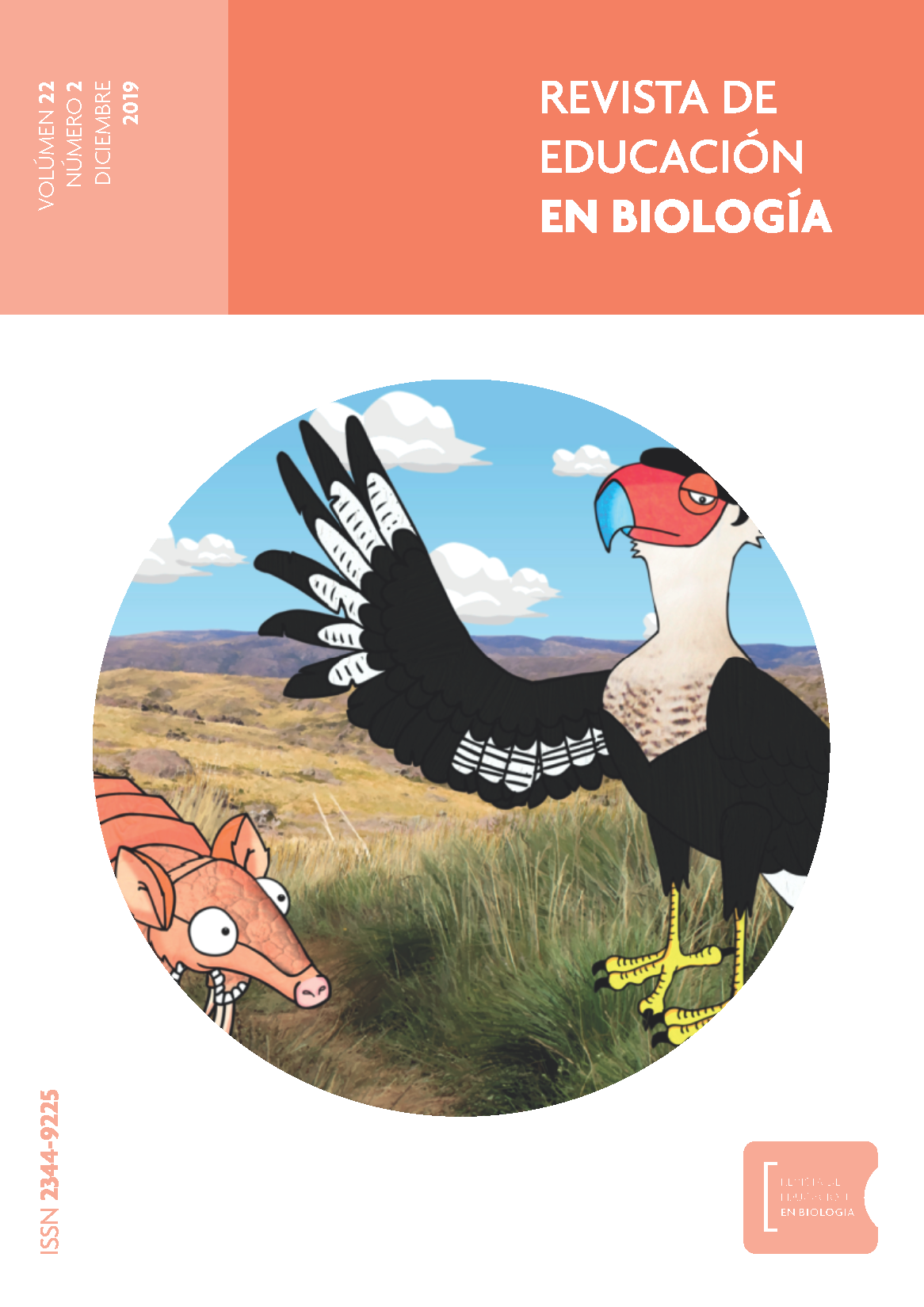Didactic knowledge of the content of practical laboratory activities by inquiry of biology teacherssh
Main Article Content
Abstract
When designing a practical laboratory activity, it is important to define the relationship between the results of the activity and the theoretical knowledge. Beyond the approach or content addressed, practical activities involve the implementation of different types of related activities, which are essential aids to promote the construction of new knowledge. Considering the central role that design plays in research and, in particular, for students to acquire a valid vision of the relationships between science-technology and society, it is essential that students have the opportunity to participate in the elaboration of experimental designs, instead of following detailed guides already prepared by teachers. The importance of laboratory activities is also stressed because of their motivational character of learning. However, motivation is questioned and differentiated from interest, since, although certain practical activities can generate interest within a particular content, there is little evidence to suggest that laboratory activities motivate students towards Science in general or, towards the study of a particular Science. Situational interest refers to that which is stimulated in an individual as a consequence of being in a particular environment or situation, such as when a student does a practical task within a Science Laboratory. Unlike personal interest, situational interest is susceptible to the influence of its teacher in the short term. Although less likely to persist over time, it provides an opportunity for teachers to positively influence the effectiveness of student learning on specific content. In the research process, some ideas, arguments, conjectures, discussions, data analysis, were shared in articles that were published during 2017 and 2018 in academic journals. At the time of writing, the articles went on to form chapters of the Thesis, threading the production into a continuum that gives an account of the investigations carried out for the construction of the object of study.
Article Details

This work is licensed under a Creative Commons Attribution-NonCommercial-ShareAlike 4.0 International License.
Aquellos autores/as que tengan publicaciones con esta revista, aceptan los términos siguientes:- Los autores/as conservarán sus derechos de autor y garantizarán a la revista el derecho de primera publicación de su obra, el cuál estará simultáneamente sujeto a la Licencia de reconocimiento de Creative Commons que no se permite un uso comercial de la obra original ni de las posibles obras derivadas, la distribución de las cuales se debe hacer con una licencia igual a la que regula la obra original.
- Los autores/as podrán adoptar otros acuerdos de licencia no exclusiva de distribución de la versión de la obra publicada (p. ej.: depositarla en un archivo telemático institucional o publicarla en un volumen monográfico) siempre que se indique la publicación inicial en esta revista.
- Se recomienda a los autores/as difundir su obra a través de Internet (p. ej.: en archivos telemáticos institucionales o en su página web) después del proceso de publicación, lo cual puede producir intercambios interesantes y aumentar las citas de la obra publicada. (Véase El efecto del acceso abierto).

